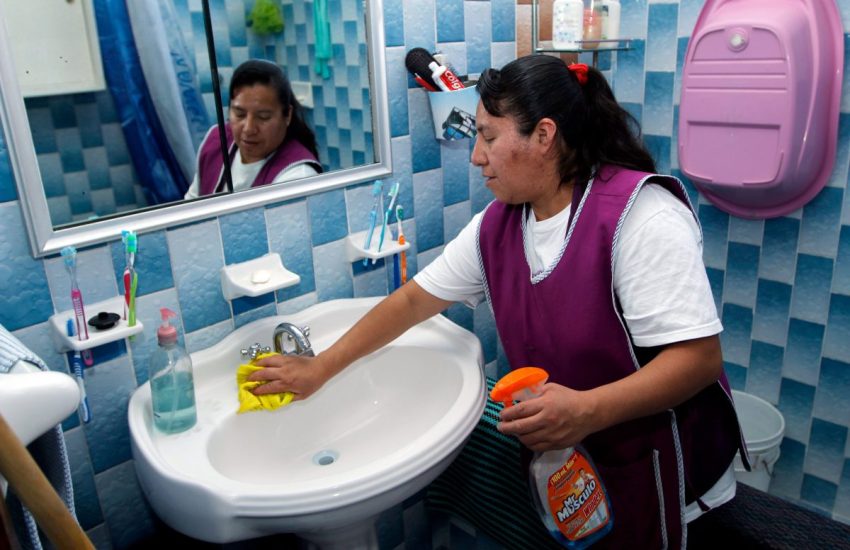Both houses of Congress have now approved a bill that makes the enrollment of domestic workers in the IMSS (Mexican Social Security Institute) social security program mandatory, a big step for housekeepers and other domestic employees.
Maids, gardeners, and other domestic workers are men and women who for years have belonged to the most vulnerable groups in the country without labor rights, social security, or a decent retirement pension. The new legislation will grant them access to benefits ranging from health care to sick leave and worker’s compensation.
Here are four key points from the domestic workers labor bill for anyone employing domestic help:
1. Who counts as a domestic worker?
For the first time, there will be a legal definition of a domestic worker.
According to the bill, domestic workers are those who perform care activities, cleaning, assistance, or any other work related to house chores. These activities must happen within the framework of an employment relationship, meaning the domestic worker must receive economic compensation in return (so a mother who provides childcare and does housework without pay does not count).
The job can be performed de planta, meaning the worker has one employer and lives in the employer’s homes; or de entrada por salida, referring to those who live out of the employer’s home and can work either exclusively for one employer or for different ones.
The bill also states that those who perform such activities occasionally or sporadically and who provide cleaning, assistance, customer service and other analog services in hotels, nursing homes, restaurants, inns, bars, hospitals, sanatoriums, or similar establishments, won’t be considered domestic workers.

2. The law defines the rights and obligations of domestic workers.
Overall, domestic workers will have the right to access the five types of benefits that the Social Security Law provides: sickness and maternity leave; workers’ compensation; disability and life insurance; retirement and unemployment in old age; childcare insurance and social benefits.
They must have at least 1 1/2 days off per week, nine hours of nightly rest per day and a three-hour rest every day between morning and evening shifts. If the domestic worker is live-in (de planta), their daily wage must include food and lodging.
If the domestic worker is pregnant, she has the right to medical attention starting the first day of IMSS enrollment. To access maternity leave, at least thirty weekly contributions must have been paid in the twelve-month period prior to the date on which the disability payment should begin.
3. The law also defines the rights and obligations of the patrón or employer.
Employers must register each employee’s start date with the IMSS for both live-in (de planta) and non-live-in (de entrada por salida) workers. Each employer will be responsible for signing up the domestic worker on the IMSS website, and providing information about the agreed daily salary and monthly hours.
If employers want to fire the worker, they can do so without any responsibility within thirty days following the employee’s start day. After the first month, employers must make required severance payments but do not have to give a reason for their decision .
If the employer stops reporting monthly contributions, the IMSS will automatically consider the employment relationship to be over.
4. An online tool calculates voluntary contributions for both workers and employers
Neither the worker nor the employer needs to calculate voluntary contributions. The IMSS website’s calculator does the job. The information needed to calculate the amount of each contribution depends on the location (whether they reside near the border or in the rest of the country), the number of days worked during the selected month and the daily salary.
The patrón (boss) must withhold the corresponding contribution and submit it to the IMSS via monthly payments online or at the designated bank. If the domestic worker has more than one employer, each patrón must pay a contribution based on the number of days the employee worked for them that month.
Mexico News Daily
